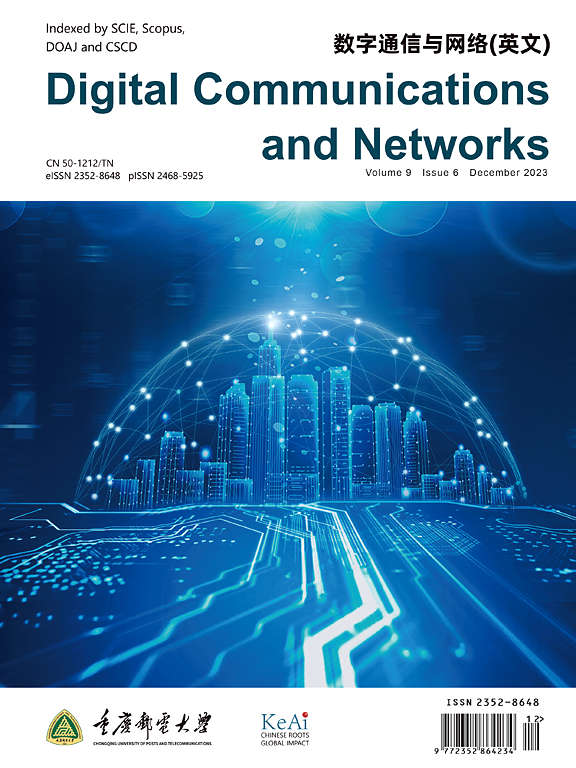Secure intelligent reflecting surface assisted mobile edge computing system with wireless power transfer
IF 7.5
2区 计算机科学
Q1 TELECOMMUNICATIONS
引用次数: 0
Abstract
In this paper, we study an Intelligent Reflecting Surface (IRS) assisted Mobile Edge Computing (MEC) system under eavesdropping threats, where the IRS is used to enhance the energy signal transmission and the offloading performance between Wireless Devices (WDs) and the Access Point (AP). Specifically, in the proposed scheme, the AP first powers all WDs with the wireless power transfer through both direct and IRS-assisted links. Then, powered by the harvested energy, all WDs securely offload their computation tasks through the two links in the time division multiple access mode. To determine the local and offloading computational bits, we formulate an optimization problem to jointly design the IRS's phase shift and allocate the time slots constrained by the security and energy requirements. To cope with this non-convex optimization problem, we adopt semidefinite relaxations, singular value decomposition techniques, and Lagrange dual method. Moreover, we propose a dichotomy particle swarm algorithm based on the bisection method to process the overall optimization problem and improve the convergence speed. The numerical results illustrate that the proposed scheme can boost the performance of MEC and secure computation rates compared with other IRS-assisted MEC benchmark schemes.
具有无线功率传输的安全智能反射面辅助移动边缘计算系统
本文章由计算机程序翻译,如有差异,请以英文原文为准。
求助全文
约1分钟内获得全文
求助全文
来源期刊

Digital Communications and Networks
Computer Science-Hardware and Architecture
CiteScore
12.80
自引率
5.10%
发文量
915
审稿时长
30 weeks
期刊介绍:
Digital Communications and Networks is a prestigious journal that emphasizes on communication systems and networks. We publish only top-notch original articles and authoritative reviews, which undergo rigorous peer-review. We are proud to announce that all our articles are fully Open Access and can be accessed on ScienceDirect. Our journal is recognized and indexed by eminent databases such as the Science Citation Index Expanded (SCIE) and Scopus.
In addition to regular articles, we may also consider exceptional conference papers that have been significantly expanded. Furthermore, we periodically release special issues that focus on specific aspects of the field.
In conclusion, Digital Communications and Networks is a leading journal that guarantees exceptional quality and accessibility for researchers and scholars in the field of communication systems and networks.
 求助内容:
求助内容: 应助结果提醒方式:
应助结果提醒方式:


